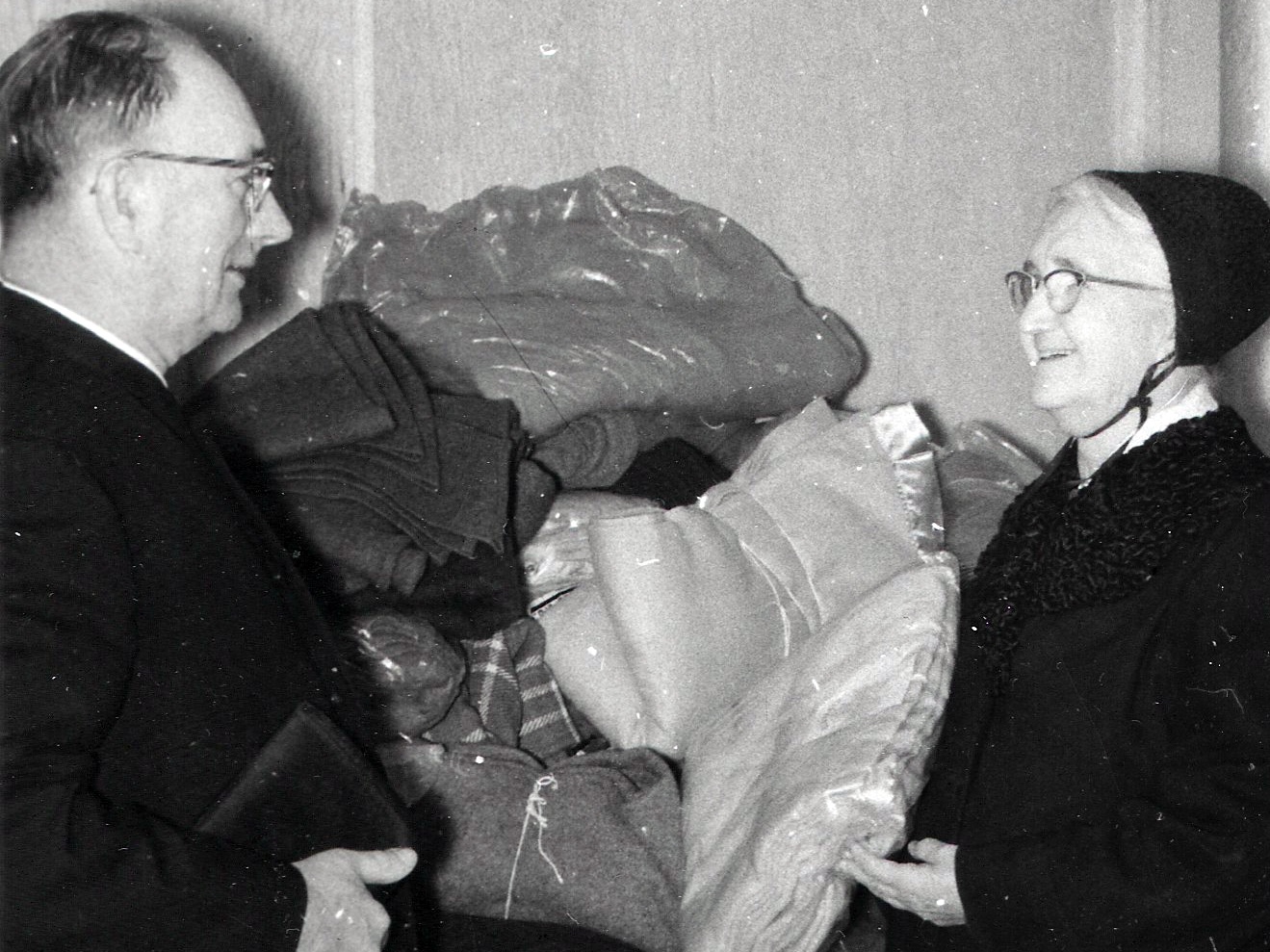
It’s the season of Mennonite Central Committee’s relief sales — a time for festivals and auctions, for buying quilts and consuming delicious homemade foods. It’s also a season for remembering the many ways in which the Brethren in Christ have historically contributed to MCC’s international relief efforts.
Today’s Photo Friday installment celebrates those efforts by showcasing one congregation’s quilt-making expertise. In the 1950s, as European nations began recovering from World War II and as the Iron Curtain descended upon the eastern part of the continent, Anabaptist denominations like the Mennonites and the Brethren in Christ mobilized for global relief. As today’s picture shows, the Bertie Brethren in Christ Church in Ontario — like many other churches in the denomination — participated in the efforts by organizing a quilting drive through its Women’s Missionary Prayer Circle.
For more information on the Brethren in Christ Church’s participation in postwar relief and recovery efforts, both in MCC and through other organizations, see:
- Donna F. Wenger, “Sea-Going Cowboys: Experiences of Brethren in Christ Men Taking Animals to Europe,” Brethren in Christ History and Life 32, no. 1 (2009), 3-27.
- M.J. Heisey, Peace and Persistence: Tracing the Brethren in Christ Peace Witness Through Three Generations (Kent, Ohio: Kent State University Press, 2003).
- Carlton O. Wittlinger, Quest for Piety and Obedience (Nappanee, Ind.: Evangel Press, 1978), 395-398, 528-529.

Thanks for this, Devin! It looks like our little group, “the Nicholas Project,” is in good company – carrying on the tradition of sharing the love of Christ through the work of our hands. We sew, knit, crochet and craft useful and/or comforting items for a variety of folks in need. We’ve made lap quilts, simple games and sensory-stimulation items for nursing homes; burial ensembles for stillborn babies, clothing for preemies who are too small for store-bought items; prayer shawls for oncology patients and just about anything else that comes to our attention. We are very easy-going with no quotas, and have a lot of fun and fellowship at our regular workshops. I would be happy to advise anyone who is interested in getting a local group started. We did the IRS paperwork to become an independent 501(c)(3) charitable organization, but that step is not really necessary if you’re considered a church-connected ministry.